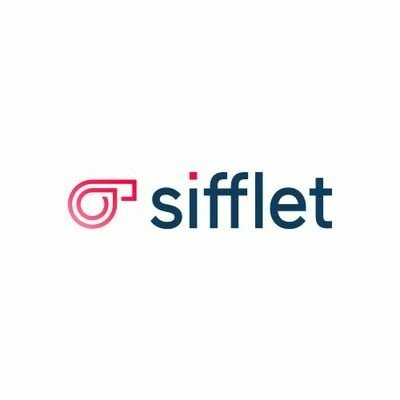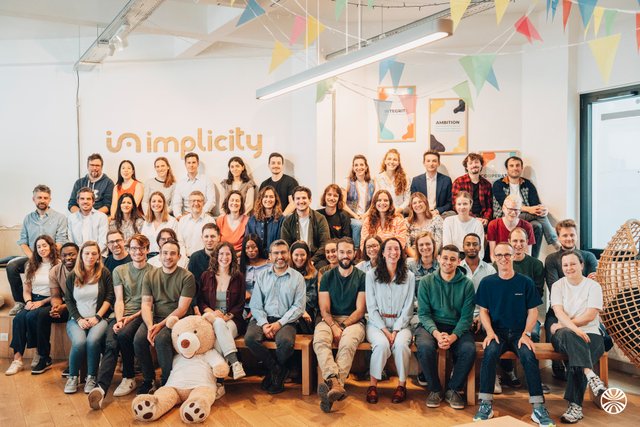Backend Engineer - Monitoring
The position
Job description
About Sifflet
We are building the world’s best data observability platform to help companies excel at data-driven decision making.
Today, half of a data team’s time is spent troubleshooting data quality issues. Sifflet is putting an end to that. Our solution allows data engineers and data consumers to visualize how data flows between their services, define data quality checks, and quickly find the root cause of any data anomaly.
About the job
Sifflet implements data quality checks ranging from simple (detecting null values) to very complex (time series forecasting models to validate that the distribution of a set of columns hasn’t changed in an unexpected way, taking into account seasonality, one-off events…). This foundation powers many features, such as automatically merging related alerts into incidents.
The monitoring team is responsible for evolving the data quality checks performed by Sifflet, and all associated workflows. As a member of this team, you will:
Design and implement new types of data quality checks.
Build features to allow users to efficiently monitor their entire data stack, such as automated monitor suggestions.
Design advanced solutions to cut the alerting noise, such as automated incident root cause analysis.
Scale our monitoring engine to support more and more customers. Some customers require monitoring massive data sets.
Some projects you could be working on
Add support for automated data profiling (understanding the expected distribution of values in all columns), and build an automated anomaly detection on top of that.
Implement automated monitoring at scale, without requiring the user to manually define its own quality checks.
Design new, more powerful data quality checks.
Our stack
The monitoring engine is built with Python 3 and its large data/ML ecosystem (notably PyTorch).
Jobs are orchestrated with Temporal.
The web API is written in (modern) Java with Spring Boot 3, the web frontend is a VueJS application written in Typescript. You may occasionally need to make minor changes to this code base.
Infrastructure: Kubernetes (AWS EKS clusters), MySQL (on AWS RDS).
Plus a few supporting services: Gitlab CI, Prometheus/Loki/Grafana, Sentry…
While not directly part of our stack, expect to gain a lot of knowledge on many products in the modern data ecosystem. The subtleties of BigQuery or Snowflake will soon be very familiar to you.
Are we the company you’re looking for?
We have offices in Paris, but we’re very remote friendly - several team members are fully remote.
We offer competitive salary and company equity.
We have experts on many topics, so there’s always someone to help. We also have tech talks where everyone can discuss a cool project or technology.
We’re constantly exposed to the intricacies of the modern data ecosystem - you’ll become very knowledgeable about data engineering and the modern data stack, and about how data is used in enterprises.
Our culture emphasises teamwork to efficiently deliver projects to production.
We’re building a genuinely great product, and we think you’ll love the team!
Preferred experience
More than two years of experience in a backend engineer role or equivalent. Data engineers who want to move to a backend engineering position are also welcome.
General knowledge of the “modern data stack” ecosystem, especially data warehouses and databases. You don’t have to know everything upfront of course, you’ll pick up what you need on the job.
Willingness to learn Python if you don’t already know the language. While this is not a machine learning (ML) engineering position, you will also be exposed to ML topics.
You value ownership of your projects from design to production, and aren’t afraid of taking initiatives.
While all written communication at Sifflet is in English, the engineering team routinely work in French, so some fluency in French is required.
None of the people who joined Sifflet perfectly matched the described requirements for the role. If you’re interested in this position but don’t tick all the boxes above, feel free to apply anyway!
Recruitment process
A first call with either Benoît (Head of Engineering) or Pierre (Monitoring Team Lead) (30 minutes)
One coding interview and one system design interview (1h30 each)
One call with a product manager (30 minutes)
At this point we generally know if we want to extend an offer, but we’re happy to organize additional sessions so you can better know the team and the company.
Want to know more?

Rencontrez Oriane, Software Engineer

Rencontrez Wajdi, CTO & Co founder
These job openings might interest you!
These companies are also recruiting for the position of “Software & Web Development”.
Senior Back-End Engineer
DiffuselyPermanent contractParisA few days at homeSoftware, Artificial Intelligence / Machine Learning200 employeesTechnical Lead backend - Python
FIELDBOXPermanent contractParis, BordeauxA few days at homeArtificial Intelligence / Machine Learning, IT / Digital60 employeesSoftware Architect
ImplicityPermanent contractParisA few days at homeSalary: €80K to 85KSoftware, Artificial Intelligence / Machine Learning100 employeesFullstack Engineer – Frontend Specialist
QantevPermanent contractParisA few days at homeArtificial Intelligence / Machine Learning, FinTech / InsurTech46 employeesFullstack Software Engineer - Dataiku Cloud - Onsite or Remote (FR, UK, DE, NL)
DataikuPermanent contractParisNo remote workSoftware, Artificial Intelligence / Machine Learning1,000 employeesScientific Software Engineer - Computational Chemistry
AQEMIAPermanent contractParisA few days at homeArtificial Intelligence / Machine Learning, Pharmaceutical / Biotech60 employees














